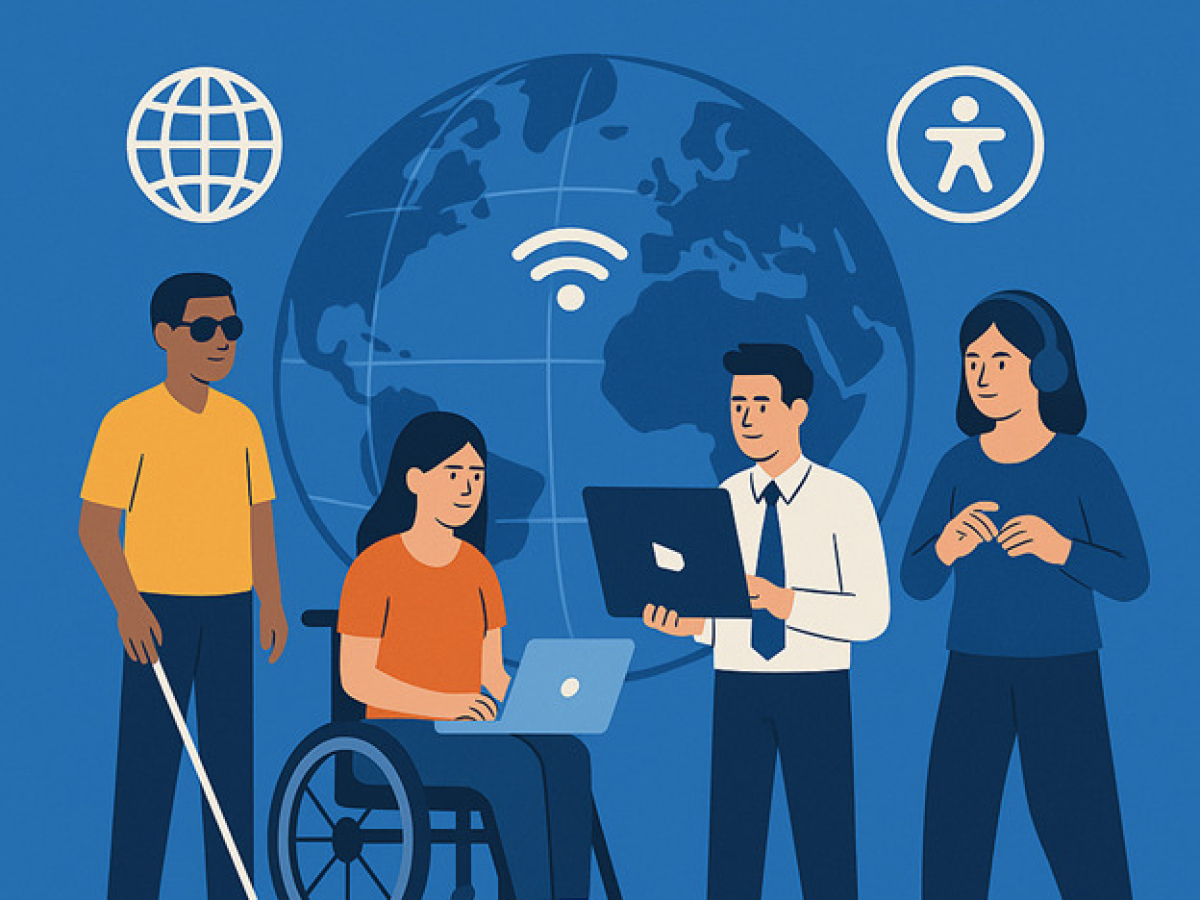Digital Accessibility Is a Global Standard
Last weekend, the European Union’s Accessibility Act officially came into force. This is a major step forward for digital rights, creating legal requirements for how businesses must design digital products and services. These rules are not optional. The rules cover websites, apps, banking platforms, ticket machines, e-books, and other essential services. Any business operating in the EU must now ensure their digital content is accessible to everyone, including disabled people.

Australia has also taken action. Their Human Rights Commission has introduced updated national guidance for inclusive digital content. This includes websites, apps, emails, PDFs, social media, voice assistants, and chatbots. They recommend meeting WCAG 2.2 Level AA, the most up-to-date global accessibility standard.
Here in New Zealand, we are still behind. There is no enforceable digital accessibility legislation. While the public sector must follow certain web standards, private businesses are not required to make their digital services accessible. As a result, disabled people continue to face daily barriers when accessing health services, applying for jobs, contacting companies, or joining public conversations online.
At Access Advisors, we have been working to change this. We proudly support the Access Matters campaign, which has pushed for stronger legislation since before the COVID pandemic. Our Director, Dr Chandra Harrison, also serves as New Zealand’s Country Advisor for G3ict, a global organisation promoting inclusive technology.
In 2023, the Accessibility for New Zealanders Bill passed its first reading in Parliament. There was real hope that we would finally see a framework to protect the rights of disabled people in both digital and physical environments. But progress stalled. As other countries move forward, Aotearoa risks falling further behind.
Meanwhile, international expectations are rising. In the United States, digital spaces are considered public spaces under the Americans with Disabilities Act. In 2023 alone, more than 4,600 lawsuits were filed over inaccessible websites and apps. Businesses are being held accountable.
This global shift impacts New Zealand directly. Many local companies sell digital services internationally. If your business serves customers in the EU, US, or Australia, you are already expected to meet accessibility standards. That means supporting screen readers, keyboard navigation, colour contrast, and adding text alternatives and captions. These are now legal requirements in many places.
At Access Advisors, we help organisations meet these standards. We provide audits, usability testing, training, and practical support. We see how small changes can make a big impact. Accessible design is better design. It benefits everyone.
But progress is uneven without legal requirements. Some organisations act because they value inclusion. Others wait until they are required to. That is why strong legal protection matters.
We believe Aotearoa should lead by example, not wait for international pressure. We already have the knowledge, the standards, and the community support. Now we need the laws to match.
Digital accessibility is about fairness and inclusion. Whether it is learning, job hunting, managing money, or booking tickets, digital services should work for all New Zealanders.
It is time to bring digital accessibility legislation back to the table. Let’s make sure no one is left behind.
